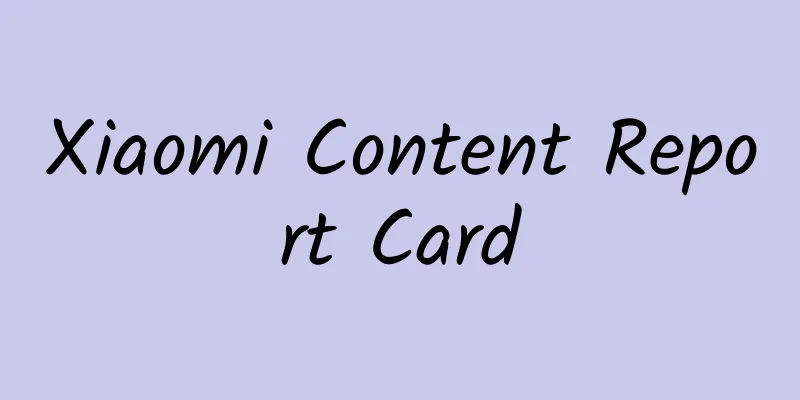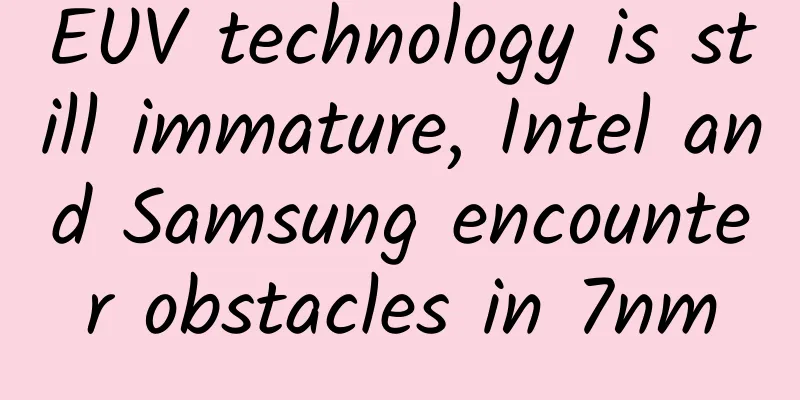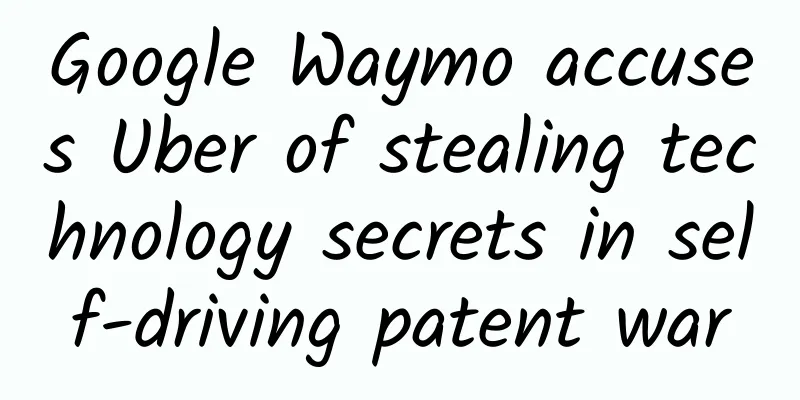Xiaomi Content Report Card

|
Xiaomi has three core businesses: smartphones, smart TVs and routers. At the same time, the content industry is also crucial to Xiaomi, because there is no "smart" to talk about if there is only equipment but no content. However, like the 100 ecological chain companies that Lei Jun wants to support, the content industry, especially the film and television industry, is also an industry that Xiaomi has no intention of "getting involved in". After seeing Xiaomi's determination to fly close to the ground in smartphones, practitioners in the film and television industry know that this company has the ability to ruin any industry. Capital and broadcasting platforms are always good friends of film and television producers. Practitioners in the film and television industry are afraid of Xiaomi, but for the sake of interests, they want to please Xiaomi and want to cooperate with Xiaomi from the bottom of their hearts. Xiaomi is well aware of this, so it has chosen the most stable and modest way of cooperation with its partners in the film and television industry, which makes all parties most comfortable: equity participation without controlling shares. This is the fence-sitting strategy that Xiaomi is most familiar with, and it has once created a fourth pole in the Chinese Internet industry besides BAT. Lei Jun showed the report card of Xiaomi content six months after Chen Tong joined the company at the media communication meeting, and implicitly compared the figures with those of "competitors". The result was that the video content on Xiaomi TV was twice as much as that on competitor TV. This was only on TV. The gap between competitors and Xiaomi was even greater in mobile video: the total number of videos that Xiaomi phones can play has exceeded 33,000, while the total number of videos on competitor phones is only 10,000. Not only that, Lei Jun also made a bold statement that all Hollywood blockbusters in theaters this year will be available on Xiaomi TV. Lei Jun paced back and forth on the stage, unable to conceal his excitement when revealing these figures. He even produced a notarized certificate proving that Xiaomi has twice as much content as its competitors, and invited the notary who made the notarization to come to the scene to witness this glorious moment for Xiaomi's video content together with hundreds of media reporters and executives from video content partner companies. Partners also gave face. Wang Changtian, chairman of Enlight Media, and Yu Dong, president of Bona Film Group, who attended the Xiaomi media communication meeting, kept repeating the fact that they are Xiaomi users. Feng Xiaogang, the most important participant of the day, also gave a high evaluation of Xiaomi's TV products and playback platform. Undoubtedly, Xiaomi has won in terms of the quantity and quality (popularity) of video content. Compared with its competitor LeTV, which is hidden by the word "friendly competitor", Xiaomi is a latecomer in the video industry. As a latecomer in the mobile phone industry, the impact that LeTV can bring to Xiaomi, whose gross profit margin is already extremely low, is probably not as great as the impact that Xiaomi, which has just entered the old business, has brought to itself.
Xiaomi is waging an all-out war with LeTV over video content. Lei Jun announced at the meeting that Youku, Tudou, iQiyi, Sohu Video, PPTV, PPS, Fengxing Video, Mango TV and other leading online video content providers and playback platforms in China have become Xiaomi's partners. Not only that, through equity investment and other forms of cooperation, traditional film and television giants such as Huace and Hairun have also entered Xiaomi's video league. At the same time, Xiaomi is also getting involved in LeTV's advantage in sports live broadcasting business, announcing cooperation with PPTV and Mango TV in sports live broadcasting. In addition, Lei Jun also emphasized that "there is no annual fee for Xiaomi TV's video content, and users will not be forced to pay an annual fee", pointing directly at the 499 yuan annual fee model on which LeTV relies for profitability. According to public figures, the cumulative sales of Xiaomi TV products, including various models of Xiaomi TV and Xiaomi Box, reached 6.77 million units. The user activity of Xiaomi TV products is quite high, reaching the level of 50%, and users use it for an average of 3-4 hours a day. The main competitor LeTV has not recently announced its cumulative sales figures, but according to the financial report and previously disclosed figures, it should be around 2-3 million. The higher number of active terminals than its competitors laid the foundation for Xiaomi to form a smoother alliance with its partners, and it was also the motivation for Chen Tong and his team to continue to spend money. With the help of Xiaomi's $1 billion, Chen Tong transformed himself from the editor-in-chief of the Internet's top video company to the most powerful and "rich" investor and operator in the entire Chinese Internet video circle. He enjoys a very high reputation in the Chinese content industry and has close contacts with cultural decision-makers. He is more suitable for the position of head of Xiaomi's content investment and operations than any of Xiaomi's past partners or executives who came from engineering or design. Investing in iQiyi, Youku Tudou, and Huace Film & TV are just the first battles that Chen Tong is in charge of in Xiaomi's content investment and operation. The plate of video content production and consumption is much larger than the share that Xiaomi can get with the $1 billion. If Xiaomi's TVs, boxes, and routers want to enter more people's living rooms, the money they need to spend may be more than 2% of the current company's valuation. Feng Xiaogang, who attended the communication meeting, as well as Wang Changtian, chairman of Enlight Media, and Yu Dong, president of Bona Film Group, all have high hopes for Xiaomi's video content playback platform. At this pace, the $1 billion may soon be spent. After purchasing the product, users will want to read the content, so the entire content industry... is a matter of life and death. Lei Jun said this at Chen Tong's induction ceremony half a year ago. His determination remains firm. |
<<: Why would Google open source its most important secrets?
>>: Foreign media analysis: Why Apple open-sourced Swift
Recommend
E-commerce repurchase rate analysis and improvement strategies!
New users and repeat purchases are the two main s...
Event promotion plan, execution and implementation!
How to independently design and execute the strat...
Bidding promotion: How to write creative ideas to increase clicks?
When doing bidding promotion , in addition to cho...
Real case | Using this method, the conversion rate of user orders increased by 5 times!
Have you ever encountered such a situation? ——Aft...
KOC Creation Guide
Recently, the operation circle has been talking a...
Pay attention! The first "Tiangong Classroom" is about to start
"When filling out my college entrance examin...
How to register for WeChat Video Account? How to apply for internal testing of WeChat Video Account?
Before we knew it, someone posted a message on We...
2021 Short Video Basic Training Camp, learn how to play in 7 seconds and quickly learn how to monetize
2021 Short Video Basic Training Camp, learn how t...
Can laser combs help hair grow? Huaxi experts: Before taking care of your hair, first understand these 4 facts!
For the delicate little fairy, There is something...
Live video streaming, online claw machine and the Internet of Things, where will the next trend be?
Is it possible for an industry that has been tepi...
Exclusive interview with Li Lanjuan: Can humans eventually defeat the new coronavirus? Technology is the key to fighting the epidemic
The epidemic is really affecting our lives. In th...
How many "gold medals" are needed to expose Zhou Yahui's true colors?
Since the "20CM" plunge on June 21, wil...
One ton of lunar soil can provide 50 people with drinking water for a day? Chinese scientists propose a "lunar soil water production method"!
One ton of lunar soil may provide drinking water ...
All the candies and wines you can eat during the New Year's Day are due to him.
Although humans have been making wine for thousan...
When obsessive-compulsive disorder meets AI, is there a cure for this "alternative terminal illness"?
Written by: Zhu Hengheng Editor: Wang Haha Layout...









